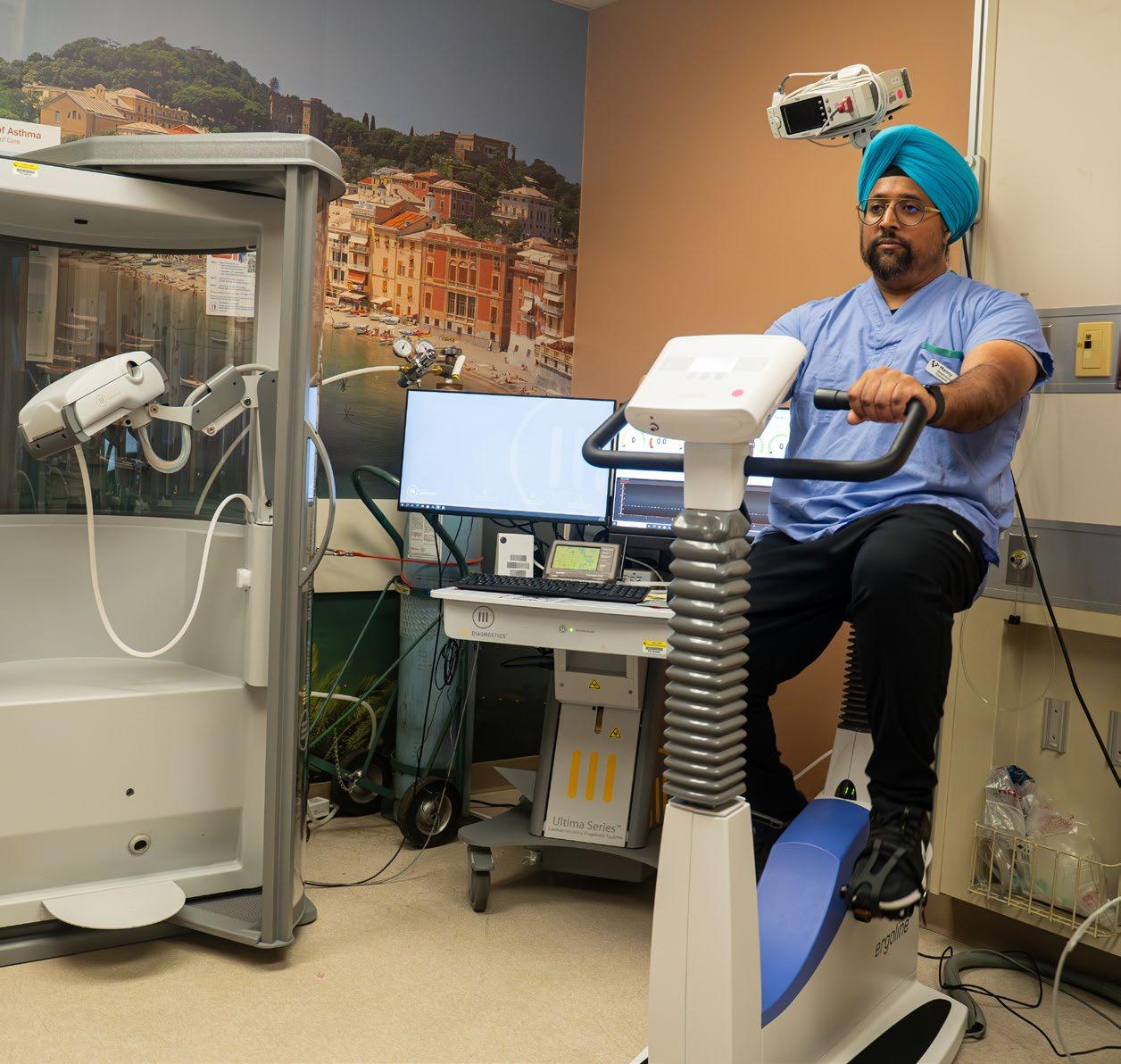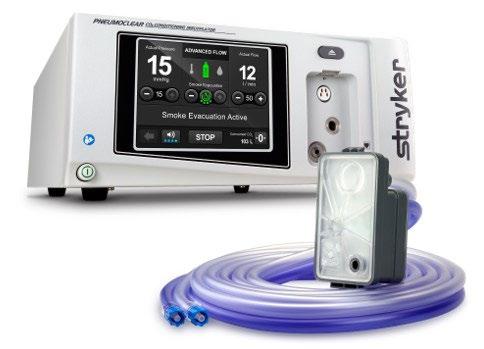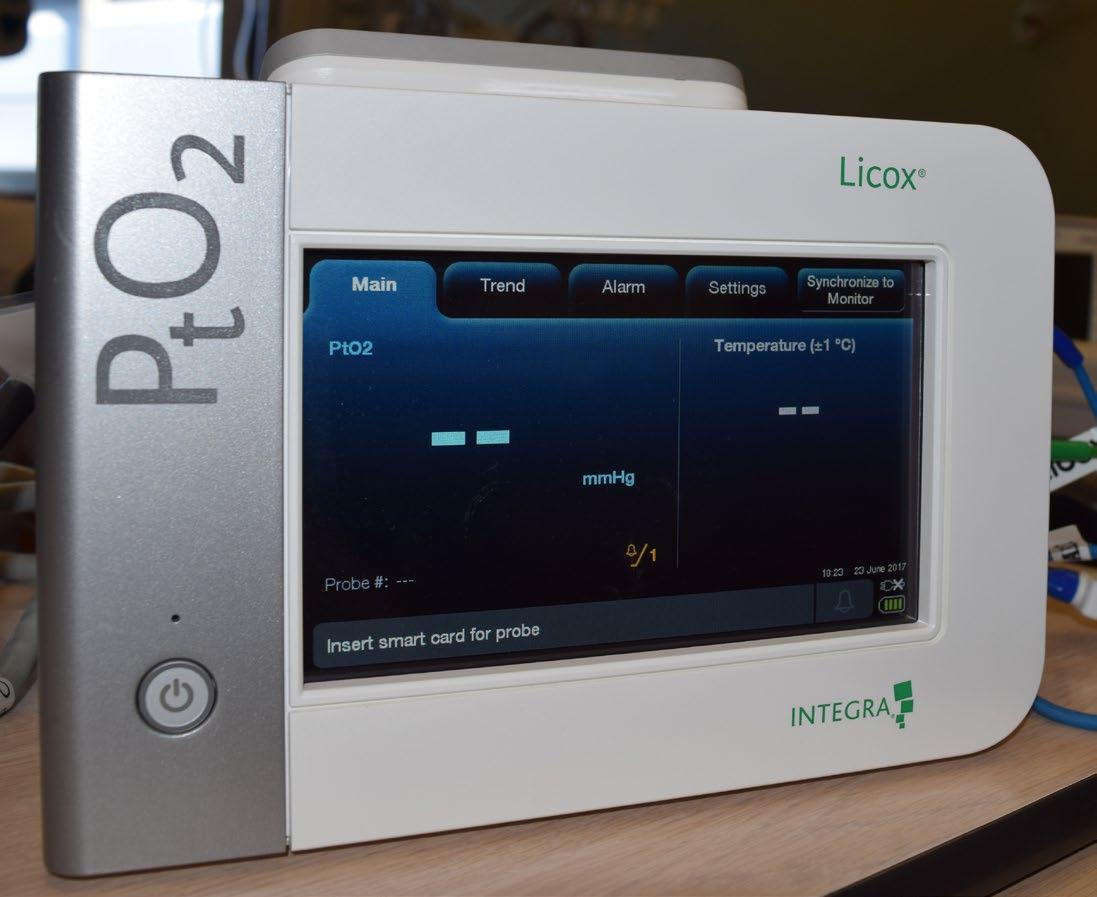Novus PFX-C2
Pulmonary Function Lab
Breathing issues can be frightening and debilitating, and getting the right diagnosis is key to helping people feel better. Royal Columbian’s Pulmonary Function Lab runs advanced breathing tests to show if a patient’s shortness of breath is due to their heart or lungs. The Novus PFX-C2 allows the care team to differentially diagnose patients, allowing them to create individualized treatment plans. It also allows for the comparison of test results over time, which helps in optimizing treatments if changes are needed. Lastly, the Novus PFX-C2 gives the healthcare team an overall picture of a patient’s heart and lung function simultaneously. This can be crucial for decisions about surgeries, cancer treatments, or transplants. Linked to equipment donors funded last year, it works daily to ensure patients get care tailored to their individual needs.
Stryker PneumoClear System & 1688 4K Fluorescence Imaging System Operating Room
Royal Columbian’s operating rooms handle some of BC’s most complex surgeries, including trauma and cancer cases from throughout the region and beyond. The PneumoClear system gently warms and filters the gas used to create space inside the body during certain procedures, reducing pain, complications, and recovery time. The 4K Fluorescence Imaging System gives surgeons an exceptionally clear view, even making cancerous tissue or tiny blood vessels “light up” with special dyes. This helps them work with unmatched precision, removing more of what shouldn’t be there while protecting what’s healthy, resulting in safer surgeries and better outcomes for patients facing serious illness or injury.
Royal Columbian Hospital is a referral centre for complex surgical cases, including cancer. Surgical teams perform delicate, highly specialized procedures that demand advanced tools and extraordinary precision. With support from donors, we are able to invest in innovations, like new imaging and surgical systems, that help deliver safer surgeries, faster recoveries, and better outcomes for patients.
Respiratory therapist Manny Sihota demonstrates testing with a stationary bike in the Pulmonary Function Lab.
Cortical Brain Stimulator Neurosurgery
Brain surgery requires the highest level of precision to remove tumours while preserving vital functions like speech or movement. As a regional centre for complex neurosurgery, Royal Columbian uses a cortical brain stimulator to “map” the brain during surgery. By testing surrounding areas before removing tissue, surgeons can safely take out as much of the tumour as possible while protecting what’s essential. For patients, this means a better chance at longer survival and a good quality of life after treatment.
Licox Brain Tissue Oxygen Monitor Intensive Care Unit
Brain injuries can have wide-ranging effects on health and recovery. Royal Columbian is one of the province’s two adult Level 1 trauma centres, caring for patients with serious head injuries. The Licox monitor measures oxygen pressures inside injured brain tissue, showing doctors in real time whether the brain is getting the “fuel” it needs to function. If the pressure is too low, brain cells are at risk; if it’s healthy, the tissue is well supported. This immediate insight helps doctors adjust treatment on the spot, protecting brain function and improving recovery for 60–120 patients annually.
Transonic Flow Probe Cardiac Surgery
Intensive Care Unit (CSICU)
When a patient’s heart or lungs are failing, Royal Columbian offers one of BC’s most advanced life-support programs, known as ECMO (Extracorporeal membrane oxygenation). ECMO functions by taking a person’s blood from the body, replacing the oxygen and removing carbon dioxide, then pumping the blood back inside the body. This allows the delivery of oxygen and blood to the body’s organs and tissues. The Transonic flow probe ensures the right amount of oxygen-rich blood is flowing through the system. This is vital for patients already at Royal Columbian and for those rescued by the hospital’s mobile ECMO team, the only one in BC that travels to other hospitals to connect unstable patients to ECMO and bring them to Royal Columbian for advanced care. Without this service, many of these patients would not survive.
Perfusionist Kassim Kamani looks over an ECMO machine in the Cardiac Surgery Intensive Care Unit.
Cerebral Function Monitor
Neonatal Intensive Care Unit
In the neonatal intensive care unit, every moment matters for fragile newborns – especially those born extremely early. Royal Columbian’s NICU, one of only four in BC equipped to care for babies as young as 23 weeks, uses a cerebral function monitor to track brain activity in real time. This advanced technology helps the medical team detect seizures and other cerebral issues that might not be visible otherwise, enabling immediate treatment. Early intervention can protect brain development and improve long-term health outcomes. For parents, it means peace of mind knowing their baby’s brain is being closely monitored, giving their child the best possible start in life.
Snoezelen / Sensory Rooms
Dementia Care
At Queen’s Park Care Centre, residents living with Alzheimer’s or dementia can enjoy calm and comfort in specially designed sensory rooms. These spaces feature soft lighting, soothing sounds, gentle movement, and interactive elements that invite residents to explore at their own pace. The interactive nature of the space can engage people who previously did not take part in activities, and the tools can spark moments of creativity and self-expression. For families, it’s reassuring to know their loved ones have access to experiences that can lift mood, reduce agitation, and inspire connection.
Donors like you make extraordinary care possible every day. We are so grateful for your generosity. To make a gift today, scan this code to reach our website.
Royal Columbian Hospital Foundation
330 East Columbia Street
New Westminster, BC V3L 3W7
Fran and Jennifer from Physiotherapy demonstrate the sit-to-stand trainer.
Interactive sensory spaces create calming and engaging experiences for residents at Queen’s Park Care Centre.










